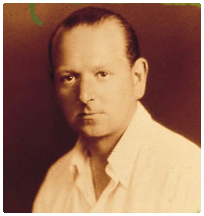
|
Dr. Edward Bach, M.B., B.S., M.R.C.S., L.R.C.P., D.P.H (CAMB), was a well known Harley Street consultant and bacteriologist who practiced for over 20 years. He became more interested in the patients than their diseases and felt that it would be more conducive to healing to tackle the causes rather than the end result i.e. the physical sickness of the patient. Bach felt strongly that the cause of disease was a result of the patients wrong thinking i.e. their fears, worries and anxieties and that once these were addressed that the energy expended would then be freed up for healing the body. The doctor found an echo of his ideas when he discovered homeopathy, whose founder Hahneman had said that "the patient is the most important factor in his healing". Bach worked for a time in the London Homeopathic Hospital, and as a bacteriologist, noted that elevated levels in intestinal bacterial often led to chronic disease. He also noted that certain patients suffering from the same emotional difficulties responded well to similar treatments or nosodes. As a result, he developed the seven Bach Nosodes, which are still in use today. The success of these nosodes which |
|
were prescribed according to the patients temperament confirmed Bach's idea that disease was "the consolidation of a mental attitude", rather than of physical origin. Gradually Bach came to dislike the reintroduction of disease into the body (the tenet of homeopathy is to treat like with like) and wanted to find a more natural means of healing. He abandoned his practice and training and began to rely on his intuition and natural healing abilities. He was a spiritual sensitive, who would first suffer the emotional state he needed to cure, until he found his Remedies one by one from the flowers, plants and trees of nature. These Remedies were to restore vitality to the sick, so that the could overcome their emotional difficulties, in order to allow the body to heal itself. After spending some time in Wales, where he began his discoveries, Bach moved to Mount Vernon in Oxfordshire, which is the home of The Bach Centre today. He died peacefully on 27th November 1936. Before his death, he declared the Bach system complete - although external problems differ throughout the ages, human nature does not alter. |


|
|
|||||||||

